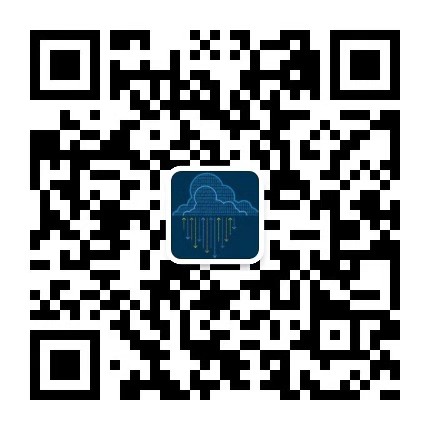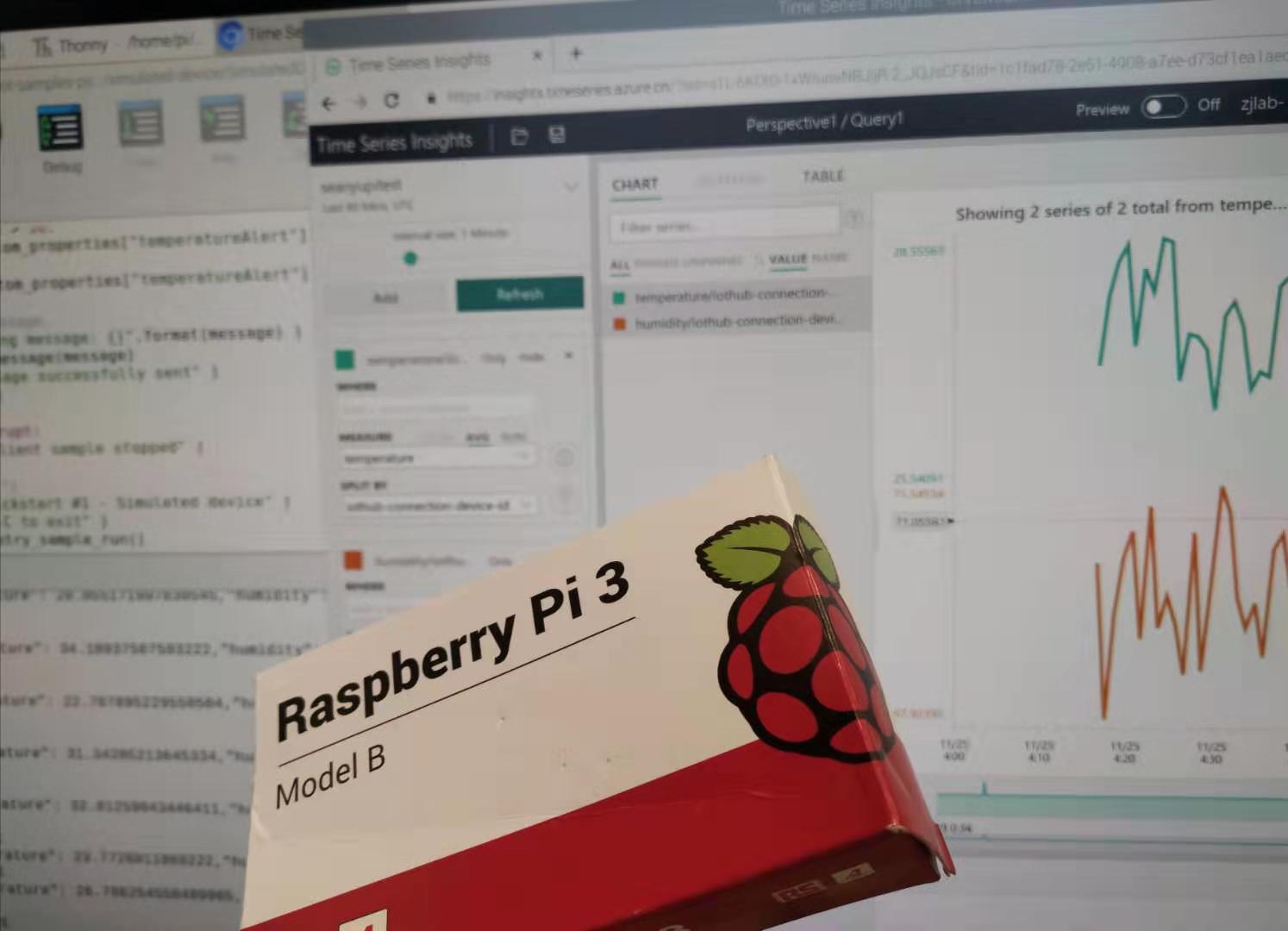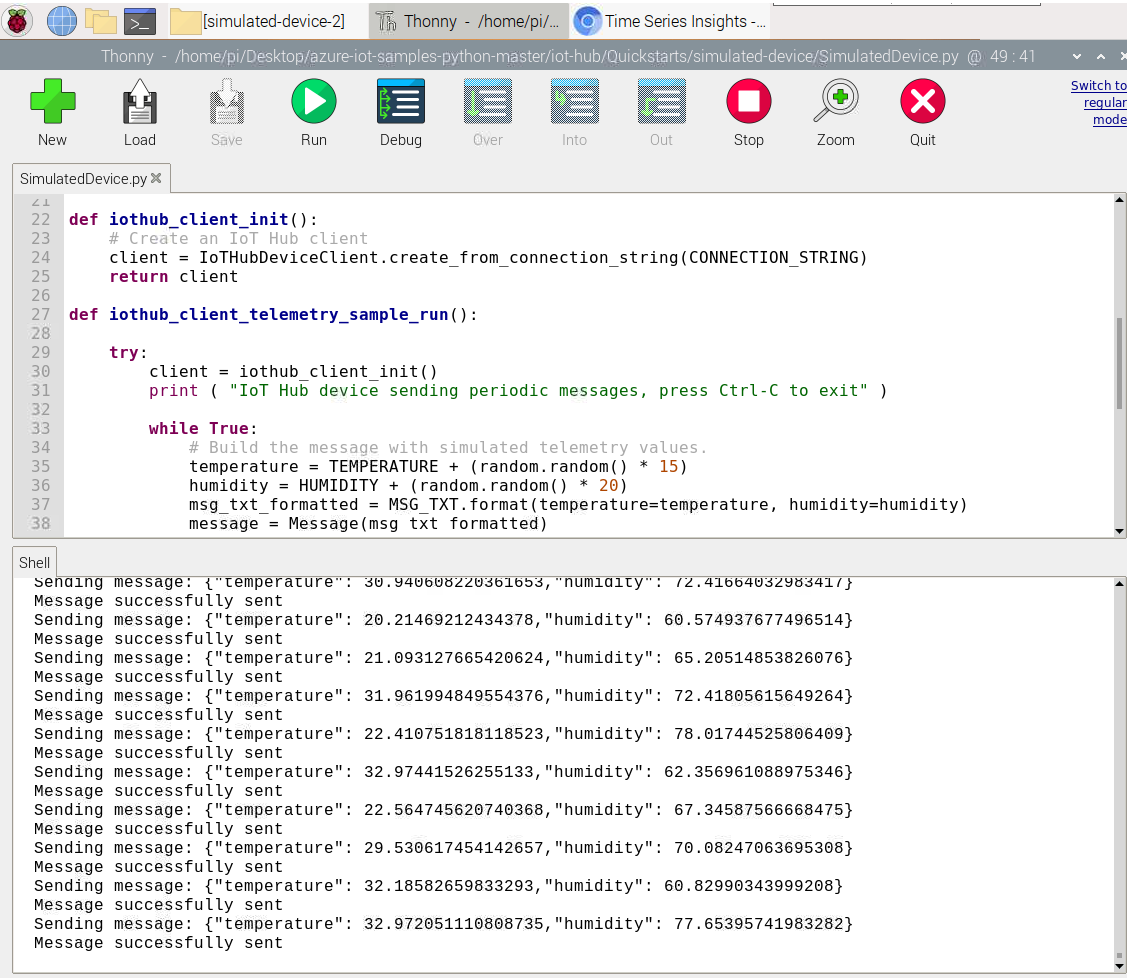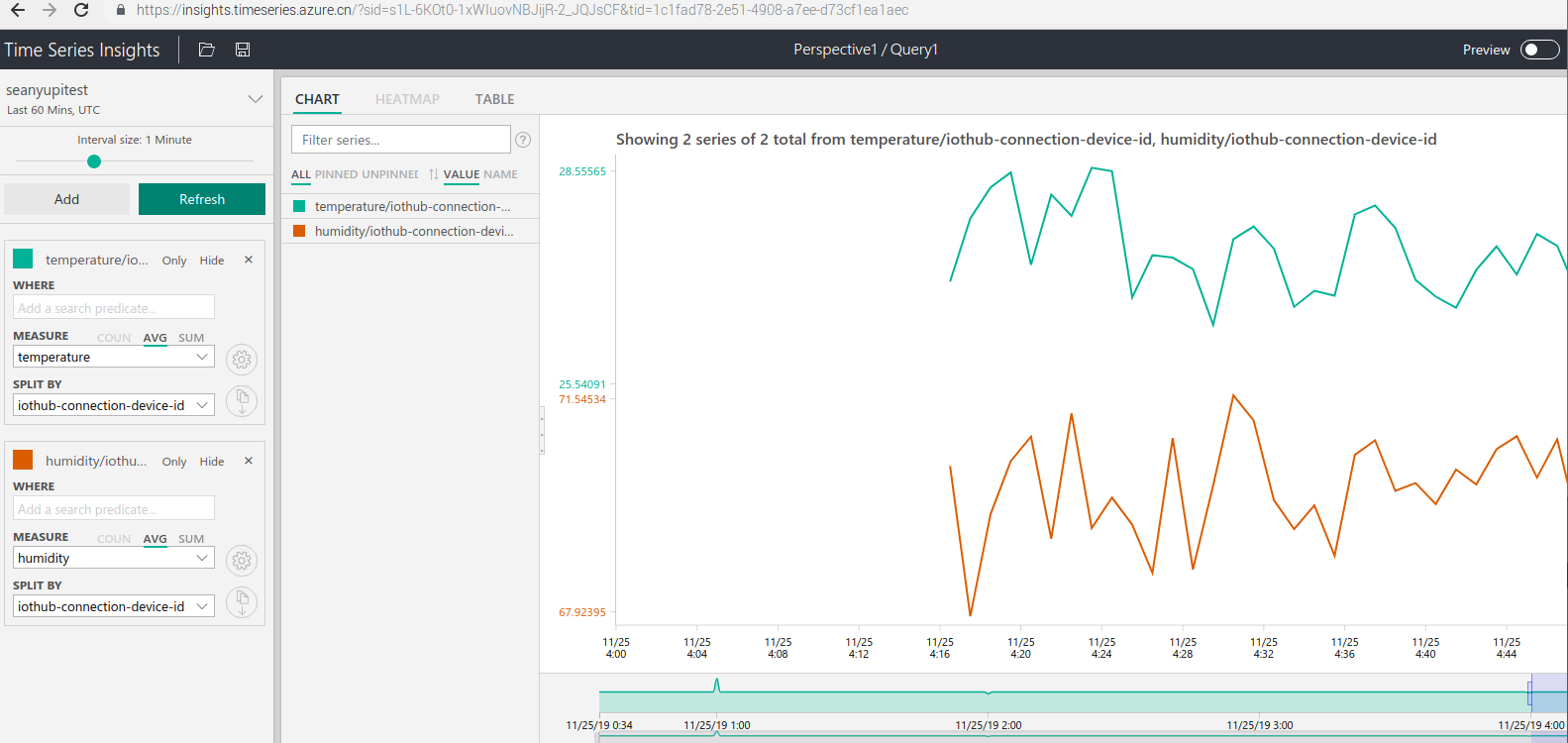更多内容,关注公众号:

树莓派是很多动手达人必备的小玩具,本节内容,让我们拿出树莓派,在30分钟内,将树莓派连接到微软云Azure的IoT Hub,然后将温湿度曲线可视化。
(本节内容完整视频在文章末尾。)

本节内容中,树莓派发送的数据是模拟出来的,并没有真实的连接到传感器,您可以选购不同的传感器来采集真实的环境信息。
Azure IoT Hub 为我们提供了设备与云双向通讯的能力,通过多种语言的SDK,我们能轻松快速的将树莓派接入到云。本案例使用微软官方代码,示例代码一共约70行,非常简单。

关于IoT Hub的更多内容,请参考:
时序见解(Azure Time Series Insights)用来存储时间序列的值,同时提供UI,将数据可视化。

关于时序见解的更多内容,请参考:
时序见解和IoT Hub可以无缝连接,无需写代码即可将上传到IoT Hub的数据进行可视化。
树莓派上传数据的代码:
import random
import time
# Using the Python Device SDK for IoT Hub:
# https://github.com/Azure/azure-iot-sdk-python
# The sample connects to a device-specific MQTT endpoint on your IoT Hub.
from azure.iot.device import IoTHubDeviceClient, Message
# The device connection string to authenticate the device with your IoT hub.
# Using the Azure CLI:
# az iot hub device-identity show-connection-string --hub-name {YourIoTHubName} --device-id MyNodeDevice --output table
CONNECTION_STRING = "{your string}"
# Define the JSON message to send to IoT Hub.
TEMPERATURE = 20.0
HUMIDITY = 60
MSG_TXT = '{{"temperature": {temperature},"humidity": {humidity}}}'
def iothub_client_init():
# Create an IoT Hub client
client = IoTHubDeviceClient.create_from_connection_string(CONNECTION_STRING)
return client
def iothub_client_telemetry_sample_run():
try:
client = iothub_client_init()
print ( "IoT Hub device sending periodic messages, press Ctrl-C to exit" )
while True:
# Build the message with simulated telemetry values.
temperature = TEMPERATURE + (random.random() * 15)
humidity = HUMIDITY + (random.random() * 20)
msg_txt_formatted = MSG_TXT.format(temperature=temperature, humidity=humidity)
message = Message(msg_txt_formatted)
# Add a custom application property to the message.
# An IoT hub can filter on these properties without access to the message body.
if temperature > 30:
message.custom_properties["temperatureAlert"] = "true"
else:
message.custom_properties["temperatureAlert"] = "false"
# Send the message.
print( "Sending message: {}".format(message) )
client.send_message(message)
print ( "Message successfully sent" )
time.sleep(1)
except KeyboardInterrupt:
print ( "IoTHubClient sample stopped" )
if __name__ == '__main__':
print ( "IoT Hub Quickstart #1 - Simulated device" )
print ( "Press Ctrl-C to exit" )
iothub_client_telemetry_sample_run()
IoT Hub 接入文档,请参考:
https://docs.azure.cn/zh-cn/iot-hub/quickstart-send-telemetry-python
树莓派系统下载:
https://www.raspberrypi.org/downloads/
Micro SD卡格式化工具:
https://www.sdcard.org/downloads/index.html
树莓派系统写入Micro SD卡工具:
https://sourceforge.net/projects/win32diskimager/
完整实战视频如下: